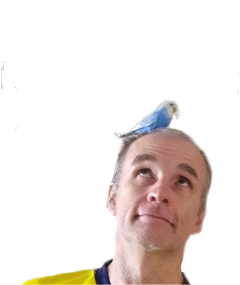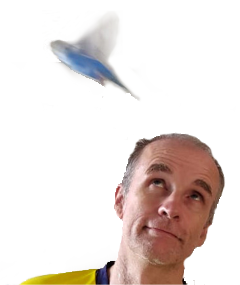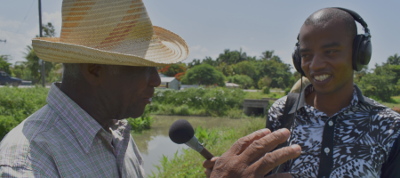Journalist's panic button slowly summons paperwork and bureaucracy
Sept. 11, 2015
Everyone knows Mexico is one of the most dangerous places in the world for a reporter. But Flor Goche, at least, must have felt a little safer than her colleagues. For the last year she has been part of a federal government program to protect journalists. Everywhere she goes she carries an electronic panic button; at a single push, help would arrive "immediately and efficiently". At least, that was what she was told by the government agency which administer it, the Mechanism for Protection of Journalists and Human Rights Defenders. This week, she got a chance to test that claim, she recounts on facebook.
On the evening of the 8th, she returned to her apartment to find two laptops stolen. Her TV, DVD player, money and jewelry were untouched. Papers -- receipts, taxes files, travel documents -- were strewn across her bedroom floor. Her clothes had been rifled through, but not taken. The missing laptops, she writes on facebook, contained notes for a report soon to be published in the online journal Desinformaremos about one of Mexico's hottest stories: the dissappearance of 43 students at the hands of police in violence-plagued Guerrero State. The locks showed no signs of being forced. The thieves were clearly "professionals", writes Goche, who has carried the button ever since a similar break-in at her office a year ago.
So she pressed it.
Nothing happened.
She pressed it twice more. Still nothing.
She called the Mechanism for Protection of Journalists. They contacted the Secretary for Public Security, who sent over two agents. The agents looked around the apartment without taking notes or photos, and suggested she file an official complaint with the prosecutors' office.
She called the the Mechanism again, where an representative offered to help her file the complaint with the prosector. Minutes, later, she says, he retracted the offer. Instead he asked her to send him a copy of the complaint once she had filed it. When she insisted she needed help, he told her to speak to her employer.
Finally, her editor contacted the National Human Rights Commission, who requested investigators the Special Prosecutor for Crimes against Freedom of Expression.
A day after she had pressed the button, the investigators arrived.



